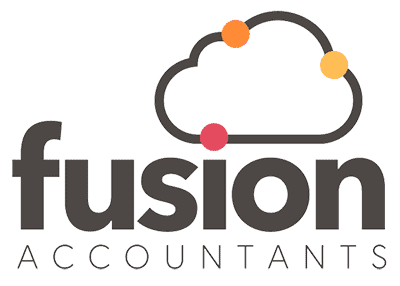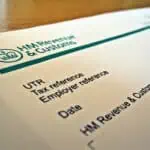What happens if you miss tax return deadline?
Reading Time:
What is self assessment
Self assessment is a system devised by HMRC for individuals to assess the amount of tax they need to pay. Essentially it is a system through which the government collects Income Tax. In Self assessment, individuals are required to provide account of their income and expenses including their capital gains. Companies too pay corporation tax under self assessment.
Who is required to do self assessment
Usually, tax is collected automatically through deductions in salaries and pensions. But people who have other income must report it to HMRC through Self assessment tax returns. Self assessment is must for
- Self-employed individuals or sole traders who have an annual income that exceeds 1000 pounds.
- Individuals who are working as partners in a business partnership.
- Individuals who have a total income of more than 100,000 pounds.
- People who have to pay High Income Child Benefit Charge.
- Property owners who get income from renting out their properties.
- Individuals who generate income through sources that are untaxed like investments, savings or foreign Income.
- Individuals who receive capital gains through investments, selling of properties or other valuable possession.
How does the process of Self assessment work
Registration with HMRC:
If you receive income through sources that require Self assessment (explained above), you will need to get registered with the HMRC for Self assessment. The process of registration is usually done online. HMRC assigns a Unique Taxpayer Reference UTR upon registration.
Fill out a tax return form
After registration, you will need to fill out a form to provide your financial information like your income and expenses. This can be done both on paper and online. You will be required to file a tax return for a tax year which runs from 6th April to the 5th of April of next year.
If you are a busy entrepreneur with no time to spend on accounting and doing complex tax calculations for your business, leave this to Fusion Accountants who are experts in self assessment.
Calculating Tax Liability:
HMRC calculates your tax liabilities, this may include your income tax or National Insurance Contributions if applicable.
Payment:
You will then have to pay the amount you owe to the HMRC. The deadline for payment is January 31st. However, if your income is more than £1000, you will be required to pay two advance payments for your next tax bill. This is called payment on account. Each of these payments are 50% of your previous tax bill. These payments fall due on 31 January and 31 July.
Want to know more about how payment on accounts works? Please read our jargon free payment on account guide.
Deductions or tax credits:
you may be able to claim tax deductions on certain expenses like charity donations or business expenses.
If you want to know about how you can reduce your tax by availing the available deductions you may have for your business expenses, please refer to our self employed expenses guide
Penalties or interest charges:
Failure to file and/or pay your tax returns on time may make you face certain penalties, or you may have to pay interest charges. Detail about penalties is given on the following page.
What is the deadline for Self assessment
The deadlines depend on whether you are submitting a paper return or are submitting it online.
- Deadline for a paper return submission is midnight 31st October for the year 2023.
- The deadline for online return submission is midnight 31st January for the year 2023.
How do proceed after missing the deadline for Self assessment
Let us discuss briefly what should you do if you miss the deadline for your Self-assessment.
The first thing to do:
Submit your Self-assessment as soon as you realize that you have missed the deadline.
Mised the deadline and worried? Leave your worries to Fusion Accountants, they will get in action as soon as you call them and prepare and submit your pending tax returns in no time.
Pay Tax:
In case you owe any taxes, pay them immediately. You can pay your taxes by following the link Pay self-assessment tax bill.
Contact the HMRC:
If you are facing difficulties in paying your tax bills, you should contact HMRC as they may offer you the option of paying in installments. It is called a payment plan.
You can set up a Self-assessment payment plan online if you: have filed your latest tax return, owe £30,000 or less, are within 60 days of the payment deadline, and do not have any other payment plans or debts with HMRC. HMRC will ask you about your income and spending when you set up your plan. You can set up your payment plan online or will need to contact HMRC.
Also Read: Salary vs Dividends – which is best 2019-2020
What is the penalty for late return of Self-assessment?
According to the government of the UK, you will have to pay a penalty of 100 pounds if you are late in submitting your Self-assessment tax return even by 1 day. The penalty is applied regardless of the fact whether you owe tax or not. HMRC penalties for late tax returns are presented in the table below;
| Delay | Penalty |
|---|---|
| 1 day late | £100 |
| 3 months late | 10 pounds for each day you are late after the initial 3 months for a maximum of 90 days. Maximum £900 |
| Penalty for 6 months late | In additions to the above, the higher amount between 300 pounds or 5% of the tax that is due. |
| Penalty for 12 months late | Besides all the above penalties that you are required to pay, you will be charged the penalty of either 300 pounds or 5% of the tax you owe if its amount is higher than 300 pounds. |
You can estimate your penalty for late self assessment tax return and payments on HMRC website using this link Estimate Self assessment penalties.
Is interest applied on Unpaid Tax:
Yes. If you have unpaid taxes and you have also missed the deadline than interest on the tax you owe is applied from the first day after the deadline.
The current rate of interest charged by HMRC for late payment is 7.75% from 22 Aug 2023 and the rate of repayment interest rate is 4.25%.
Can I appeal against the penalties for missing the deadline of Self assessment?
HMRC allows room for a reasonable excuse, and you can appeal against a penalty if you believe you have one.
What is considered a reasonable excuse for missing the deadline?
Though each situation and case is evaluated on an individual basis, the following are some of the examples of reasons that can make your case eligible for an appeal.
- Natural disasters
- Death of a close family member
- Serious illness
- System failures or postal delays
What should I do if I want to appeal a penalty?
State your reason:
You need to explain in detail the reasons for missing your Self-assessment deadline.
Provide evidence:
You should provide evidence to support your argument.
Appeal online or in writing:
To appeal online, you will have to log into your HMRC account. There will be an option to appeal a penalty. Select this option and then follow the instructions.
If you want an appeal in writing, then write a letter and post it to the address that is on your penalty notice.
You typically have 30 days to appeal from the date your penalty was imposed.
Can an accountant help me in dealing with the consequences of missing the deadline?
Definitely. An accountant is an expert on tax laws and can offer you help in several ways as explained below.
Accurate Filing of Tax Returns:
An accountant can ensure that your tax returns are accurately filed.
Appealing Penalties:
Accountants are well-versed in the rules and regulations related to all aspects of tax laws. They are your best bet in preparing a strong appeal.
Making Arrangements for Paying Taxes:
Accountants can assist you in negotiating with the HMRC authorities in case you are unable to pay the full amount that you owe in taxes. They can help you in getting an offer for paying in installments.
Avoiding Penalties in the Future:
If you hire an accountant, he will be responsible for ensuring that you do not miss any deadlines and file your tax returns efficiently and on time. An accountant can help you minimize any risks of penalties or paying more than you need to.
Expert Advice:
An accountant can help you at every step in managing your taxes, from ensuring you know about all the credits and deductions to submitting your tax returns on time. They can offer you expert advice on dealing with penalties and can be of immense help in optimizing your financial situation.

Conclusion
From penalties to legal action by the HMRC, missing the deadline for Self-assessment has serious consequences. The first thing you need to do after missing the deadline is to submit your Self-assessment immediately. Completing your tax returns can be a daunting task. It is best to seek professional advice if you are struggling with issues regarding your tax returns. It is highly advisable to hire an accountant if you have missed your deadline and are facing penalties.
Fusion Accountants have helped numerous clients in resolving their HMRC late tax filing issues. Do not let penalties pile up. Contact us today for expert guidance and timely solutions.
Also Read: Need to know about PAYE forms






